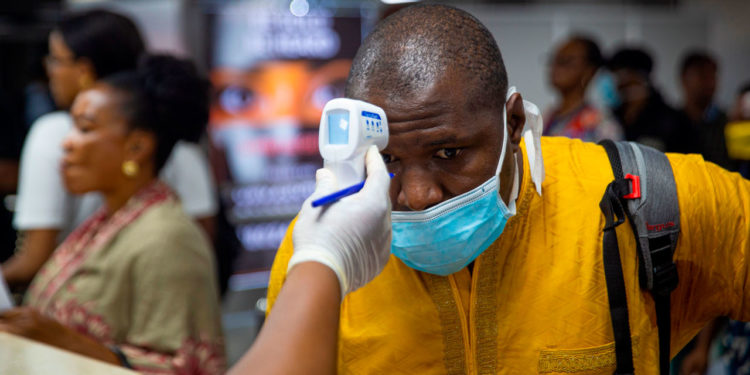Africa spent $89.5bn as fiscal response to Covid pandemic in 2021
African countries spent a whooping $89.5bn as fiscal response to mitigating the adverse impacts of the Covid-19 pandemic in 2021.
This is per the 2021 Africa Economic Performance and 0utook report, by the African Development Bank.
The $89.5bn fiscal response by African countries accounted for 3.5% of the Continent’s GDP and 0.5% of global GDP.
Of the total fiscal response, $30bn was spent in South Africa.
In Ghana, the government spent close to GHS 20bn [$2bn] in mitigating the harsh health and economic impacts of the pandemic on citizens.
Globally, fiscal measures implemented to tackle effects of the pandemic are estimated at around $17 trillion, equivalent to about 19 percent of global GDP.
Of the injected $17 trillion, almost $13.5 trillion was by G20 advanced economies and about $1.8 trillion was by G20 emerging markets.
Most countries, including low-income developing countries and other emerging markets, accounted for around $1.7 trillion.
Two-thirds of these measures have been in the form of additional spending or forgone revenue, and the remainder largely direct liquidity support.
The size and composition of fiscal support have varied vastly by country grouping, in part reflecting countries’ fiscal space and economic development.
Advanced economies and emerging markets in the G20 group of countries account for the bulk of the global fiscal response.
Developing countries, including those in Africa, have struggled to provide such support, exposing the asymmetry in resource availability.
“On top of the fiscal measures, advanced economies provided more than 10 percent of GDP in unconventional monetary policy measures through their central banks. In contrast, most African countries, already faced with tight financial constraints, deployed less than 2 percent of GDP in monetary policy support to supplement fiscal measures,” said the AfDB.
Meanwhile, Africa’s Gross Domestic Product [GDP] grew by an estimated 6.9% in 2021, a strong recovery from the pandemic-induced contraction of 1.6% percent in 2020.
The rebound, according to the African Development Bank [AfDB] was attributed to recovery in oil prices and global demand, combined with the resurgence in household consumption and investment in most countries after restrictions over the Covid pandemic were eased.
Growth in the continent’s GDP was highest in North Africa (11.7 percent) and East Africa (4.8 percent).
In North Africa, growth was buoyed by the easing of political tensions in Libya and the attendant lifting of oil exports blockade in late 2020, which, coupled with a positive oil price shock, was reflected in unexpected large base effect expansion in the country’s GDP (177.3 percent).
Southern Africa’s estimated growth of 4.2 percent represented the largest recovery, from a contraction of 6%, underpinned by strong recovery in Botswana (12.5 percent), Zimbabwe (6.3 percent), and South Africa (4.9 percent).








